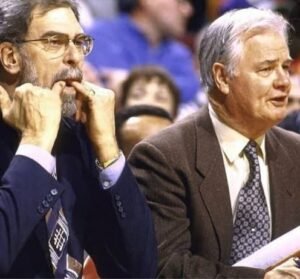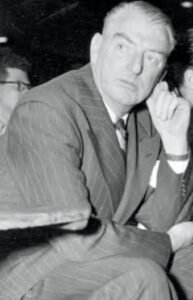![Tim Cone [PBA images]](http://sportsbytes.com.ph/wp-content/uploads/2021/09/PBA-Images15.jpg)
From the late 1980s to the 2000s, it would seem that the championship recipe in the National Basketball Association (NBA) was to employ the triangle offense. But is it still relevant in today’s pro scene, be it in the NBA or the local pro league Philippine Basketball Association (PBA)?
Tim Cone, the with the most number of championships by a head coach in PBA history with 23, has had great success through the years with the teams he was involved in – Alaska, San Miguel Coffee/B-Meg, and Barangay Ginebra. Along the way, Cone registered a record-setting two Grand Slams (a sweep of the three conferences in a year) with Alaska in 1996 and San Mig Coffee in 2014.

Hall of Famer Phil Jackson, on the other hand, owns the most number of championships by a head coach in NBA history with 11 – six (1991-93, 1996-98) with Michael Jordan and the Chicago Bulls and five (2000-02, 2009-10) with Shaquille O’Neal, Kobe Bryant and the Los Angeles Lakers.
Holder of a trio of title “three-peats” and a repeat, Jackson found success with his triple-post offense only because he was provided with the right player personnel to implement it. Moreover, Jackson had the services of an assistant on the bench by the name of Morice Fredrick (Tex) Winter, whom he brought to the Bulls and Lakers when he went into NBA mentoring starting in 1989-90.
Many assume it was Winter, who was the head coach of the Houston Rockets from 1971-73, that invented the triangle offense in basketball.
It was not him. Winter tweaked the triangle offense with variations that proved effective when he partnered with Jackson in Chicago and LAL.
For the uninitiated, the triangle offense, which is also known as the triple post or sideline triangle, is an offense strategy in basketball.
Its basic concepts were actually formulated seven decades ago by former coach Sam Berry at the University of California.
Barry introduced the triangle offense, where players stand in triangular positions on either side of the basketball court to create good spacing between players and allow each one to pass to four teammates.

Barry’s initial setup employed the simple triangulation setup of the center, who stands at the low post; a forward, who is at the wing; and a guard, who is at the corner, on one side of the court.
At the other side of this five-player system is the off guard, who stands at the top of the key, and the “weaker” forward, who is on the weak-side high post.
Barry, who was enshrined into the Naismith Memorial Basketball Hall of Fame in 1978, ran his version of the TO with a stocky guard named Fred “Tex” Winter.
Winter started his coaching jig as an assistant under Jack Gardner at Kansas State University in 1947, before a two-year stint at Marquette University, where he became the youngest coach in major college basketball at the age of 30.
He later returned to KSU to become the Wildcats’ head coach in 1953, bringing along Barry’s TO and even making it more complicated with different strategies involving various advantageous moves. He served in that post for 15 seasons, leading the school to a pair of Final Four appearances in six NCAA tournament trips.
While at KSU, Winter immortalized the triangle offense by writing the book “Triple-Post Offense” in 1962.
He joined the NBA in 1971-72 as the Houston Rockets’ top bench strategist. However, after only one and a half seasons of little success (with a 67-97 record overall) with the Rockets, Winter returned to the collegiate coaching ranks.

Winter did not get back into the NBA until 1985 when he served as an assistant to head coaches Stan Albeck and Doug Collins while with the Chicago Bulls.
Through the following years, Winter continued to make refinements on the triangle offense.
When Jackson took over the Bulls’ head mentoring reins in 1989, he retained Winter, who then not only installed the offensive strategy full time but also gave it much prominence.
From the Bulls (1989-98), the duo joined forces again with the Lakers in 1999-2000, where the triangle offense was the Hollywood City boys’ meal ticket to NBA titles from 2000-02.
With advancing age, Winter transitioned into a Lakers’ assistant during the club’s 2009 title run but retired thereafter as the Lakers successfully retained the Larry O’Brien championship hardware the following campaign.
Winter, who was elected to the Naismith Memorial Basketball Hall of Fame in 2011 on his eighth time on the final ballot, passed away on October 10, 2018, at the age of 96.
- Luka Doncic tops fans but trails peers in NBA All-Star voting shocker - January 22, 2026
- 2026 NBA All-Star Game set for Intuit Dome with three-team format - January 22, 2026
- LeBron James’ limited availability puts All-Star hopes in question - January 22, 2026



